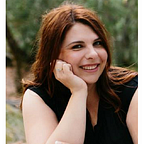I love your response — so many great thoughts in here!
I’ll start with the point that Jesus was a real person. although non-Christians may debate his divinity. He’s referenced in the Torah (the Jewish bible), although my understanding is that there he’s considered a pagan magician and not a prophet (let alone a messiah figure). Additionally, many of the people referenced in the Bible — including Pontius Pilate, who condemned Jesus to death — can be independently verified as real people through writings by those such as Pliny the Elder.
I will also say that I love documentaries on archaeology and I’ve learned enough through them to believe that enough of the Bible is archaeologically consistent to give me a comfort point in believing there are at least minimally-accurate historical nuggets of truth. The fact that other non-Biblical writings from the era also still survive helps me get past discounting the possibility that the New Testament writings were generated centuries after his death.
One thing about the Biblical Jesus — he was very careful to reach out to those who were different than he and to aid them in particular. He met and loved the dregs of society, the foreigners who were cast out, the prostitutes, those who didn’t fit in or were looked down up in the society of his era — and intentionally invited them in and did what he could to make them welcome and his friends. I agree that that Christians in particular don’t advertise enough the way this philosophy continues to be lived out, and I acknowledge that many Muslims also take and live this philosophy.
To your larger (and more important) point about the divisions between us, I don’t know that religion holds the sole responsibility for them. I think that religion is often used as a justification to hold world-views that, while comforting, are also inherently evil and divisive. We see these in various religious sects — I’ll name ISIS, followers of Warren Jeffs, and other Christian off-shoot cults (including white supremacists who claim justification within the Bible) — but I think that the process of arriving at the discriminatory and terrible behavior doesn’t start with religion. I think this is how the Bible/Koran/name-your-religious-book is used as a cudgel instead of a tool to unify and bring peace.
Honestly, I think it’s the human condition. Different cultures develop different attitudes and value systems, which are reflected within their legal systems. When those cultures clash — and sometimes they are religiously driven, and sometimes not — division is created. Even within cultural societies, divisions exist. Some of us see the world from a more creative view and others from a more concrete (or “realistic” for lack of a better word) view. Human beings are inherently messy; it’s simply the way we are made.
If the goal is to reduce or eliminate the divisions in the world and create more of a unified and peaceful existence, I don’t think atheism is the answer, or even necessarily an aid along the way. It doesn’t address the basic issues around the uniqueness of people and the conflict that naturally arises from it.
That being said, I think you and I would likely agree that civil discourse has been nearly lost, so that a conversation like this one doesn’t happen as often as it should. We — the human population — should be looking for areas of commonality and building from there, when sadly we tend to emphasize differences instead. Rather than pointing to religion, I would point to politics and infotainment as the sources of those issues, and I believe they are driving deep wedges in our (the United States) society.
